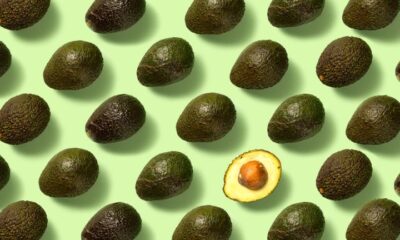Eating the right snacks can make a big difference on your health throughout the day. Whether you’re looking for a quick boost of energy, trying to curve hunger between meals, or you’re just trying to make healthier food choices, there’s a wide variety of options you can pick from. From nuts and seeds to fruits and vegetables, each snack has its own benefits and nutrients. Incorporating these snacks into your daily routine can support your physical health but also contributes to ones mental health. Take a look at these delicious and nutritious snack ideas to discover new favorites that fuel your body.
Strawberries

Shutterstock
Strawberries consistently rank at the top of the “Dirty Dozen” list due to their high pesticide residue levels. With their porous skin, they absorb chemicals easily, making it important to choose organic. Organic strawberries are grown without synthetic pesticides or fertilizers, preserving their rich flavor. Additionally, organic farming supports better soil health and reduces toxic runoff.
Spinach
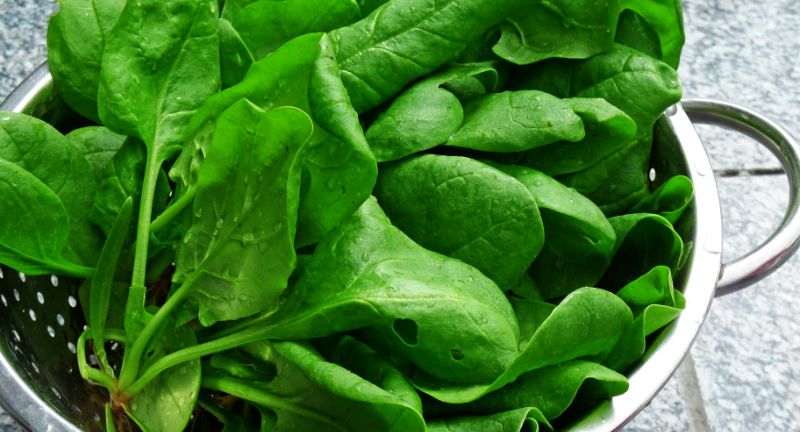
Shutterstock
Spinach is known to retain significant pesticide residues even after washing. Opting for organic ensures your greens are free from harmful substances while retaining maximum nutrients. Organic spinach offers higher levels of antioxidants like lutein, which supports eye health. It’s a small but impactful swap for a daily salad essential.
Apples
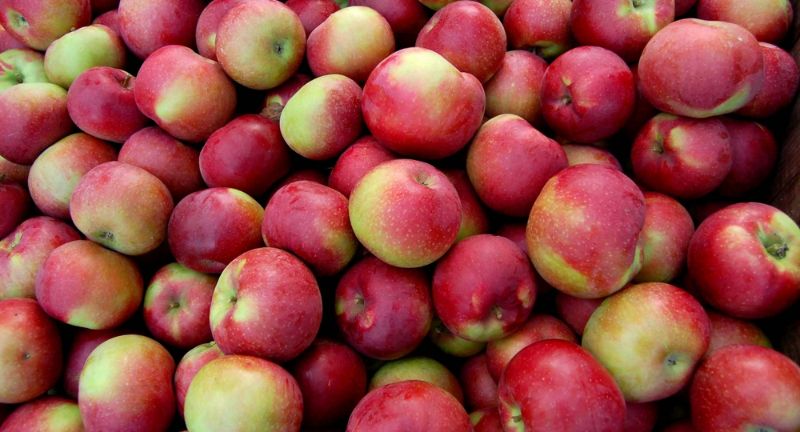
Shutterstock
Apples are heavily sprayed with pesticides to preserve their appearance and shelf life. Choosing organic ensures your apples are free of toxic residues and wax coatings. Organic apples also tend to have a richer aroma and sweeter taste. Plus, you support orchards that avoid synthetic chemicals, promoting biodiversity.
Grapes
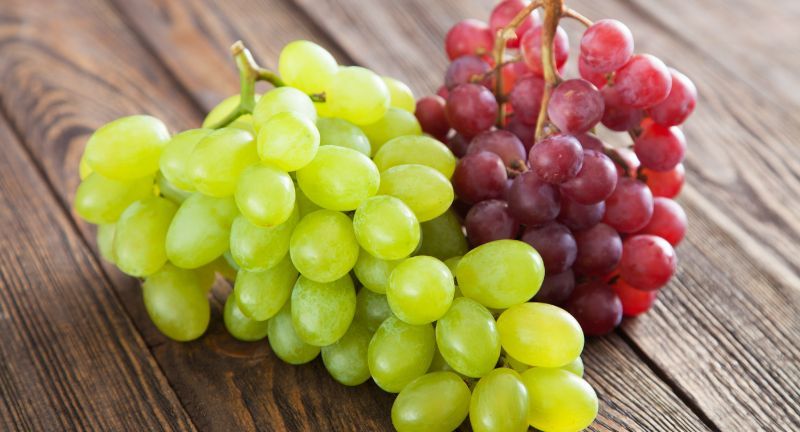
Shutterstock
Conventional grapes are vulnerable to multiple pesticide applications throughout the growing season. Organic grapes eliminate your exposure to these chemicals while preserving the natural sweetness. They are a great choice for snacks, smoothies, or even homemade jams. Organic farming of grapes also protects pollinators like bees.
Tomatoes
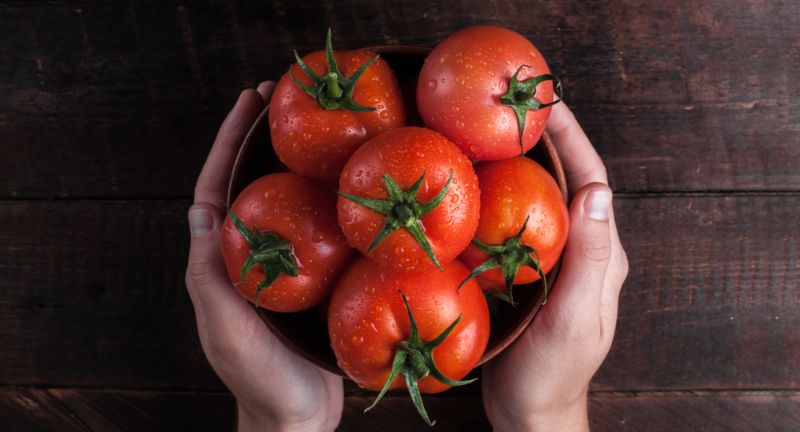
Shutterstock
Tomatoes are frequently sprayed to protect against pests and fungal infections. Organic tomatoes, on the other hand, are pesticide-free and offer higher levels of lycopene, a powerful antioxidant. Their vibrant flavor makes them ideal for salads, sauces, and sandwiches. Organic farming practices also reduce chemical use and support healthier soil.
Bell Peppers
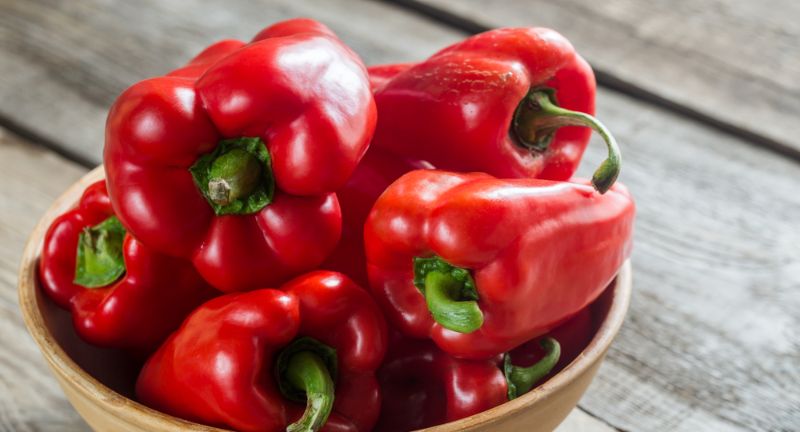
Shutterstock
Bell peppers absorb pesticides through their thin skin, even after thorough washing. Choosing organic guarantees that the vibrant colors of these peppers aren’t masking harmful chemicals. Organic bell peppers provide more vitamin C and beta-carotene. Their crisp texture and bright flavor make them perfect for snacking or cooking.
Peaches

Shutterstock
Peaches are delicate fruits prone to pesticide contamination during conventional farming. Organic peaches offer a chemical-free option with a naturally sweeter taste. They are a summer favorite for pies, smoothies, or fresh eating. Supporting organic peach orchards also promotes healthier soil and cleaner air.
Potatoes

Shutterstock
Potatoes are often treated with fungicides and herbicides, which can linger in their skin. Organic potatoes offer a safer alternative with no synthetic chemicals. They are ideal for everything from mashed potatoes to fries. Additionally, organic potato farming reduces chemical runoff, protecting nearby water systems.
Celery
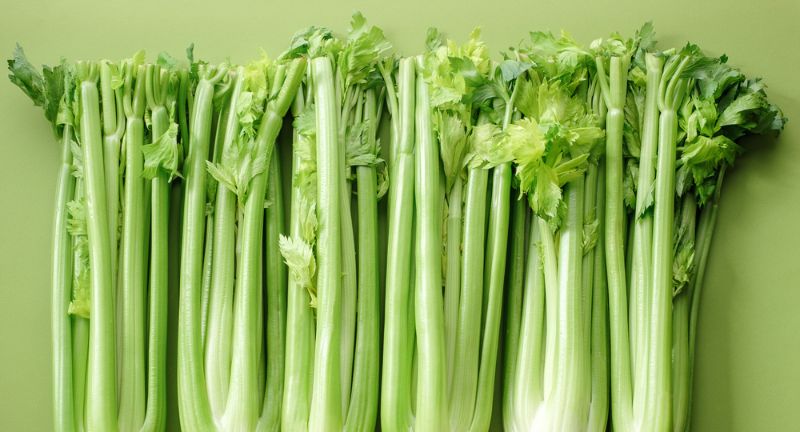
Shutterstock
With its fibrous structure, celery can trap pesticides even after being washed. Organic celery offers a cleaner choice for juicing, snacking, or adding crunch to salads. Its fresh, crisp taste also stands out more compared to conventionally grown versions. Organic farming ensures fewer chemicals are released into the environment.
Blueberries

Shutterstock
Blueberries are a superfood often exposed to multiple pesticides. Choosing organic guarantees you’re getting the health benefits without the chemical load. They’re perfect for smoothies, oatmeal, or snacks. Organic blueberry farms also support wildlife and reduce soil degradation.
Cucumbers
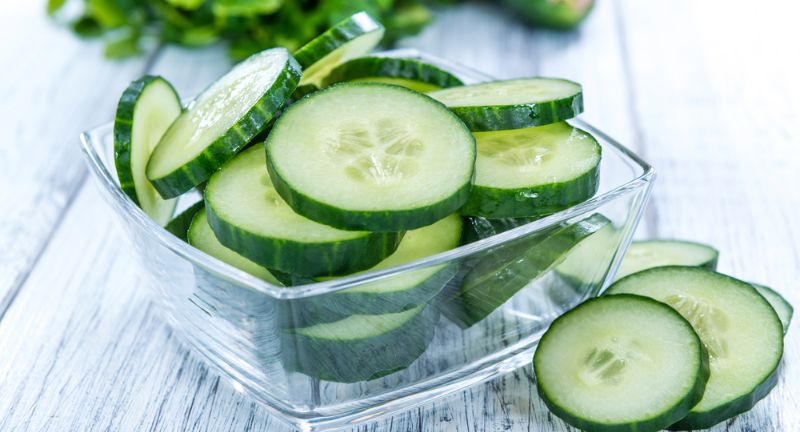
Shutterstock
Cucumbers are frequently waxed and treated with pesticides to maintain their freshness. Organic cucumbers offer a crisp, refreshing alternative without the synthetic coatings. They’re an excellent choice for salads, sandwiches, or pickling. Organic farming methods help maintain healthy soil ecosystems.
Lettuce
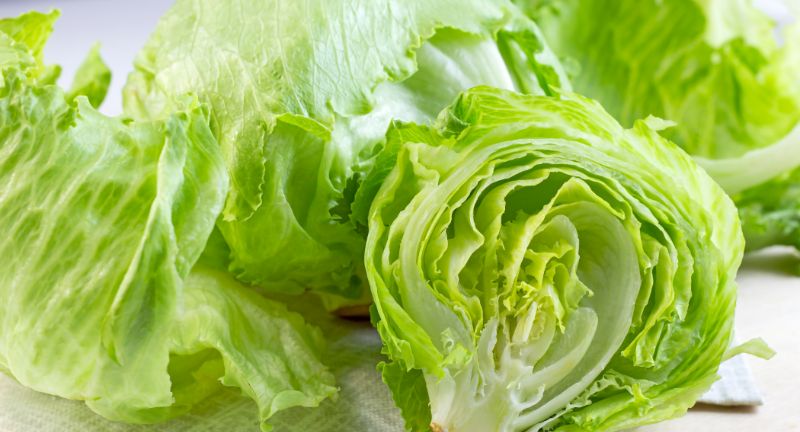
Shutterstock
Lettuce can harbor pesticide residues, especially in its outer leaves. Organic lettuce ensures your salads are chemical-free and packed with nutrients. You’ll notice a fresher taste, whether using it in sandwiches or side dishes. Organic farming of leafy greens reduces chemical usage and water pollution.
Milk
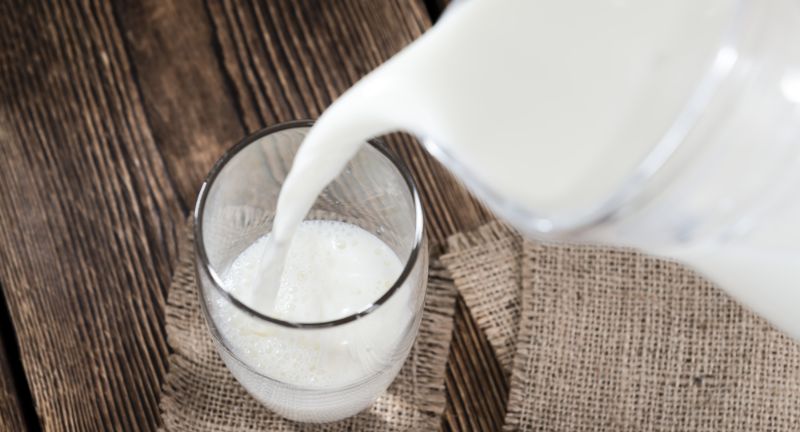
Shutterstock
Organic milk comes from cows raised without synthetic hormones or antibiotics. It provides a cleaner option with higher levels of beneficial omega-3 fatty acids. Organic dairy farming prioritizes animal welfare and limits environmental impact. Plus, the flavor of organic milk is often richer and creamier.
Eggs

Shutterstock
Organic eggs are laid by hens fed an organic diet and raised without harmful chemicals. These eggs contain higher levels of vitamins and healthy fats. Opting for organic ensures better animal welfare practices. The bright yolks and fresh taste make them stand out in any meal.
Chicken

Shutterstock
Organic chicken ensures you’re avoiding antibiotics, hormones, and genetically modified feed. The meat is higher in nutrients like omega-3s and tends to have better texture. Organic poultry farming supports sustainable practices and animal welfare. It’s an ideal choice for health-conscious households.
Beef

Shutterstock
Organic beef comes from cows raised on organic pasture and without growth hormones. It offers more nutrients and fewer contaminants compared to conventional beef. Choosing organic supports humane farming and better land management. It’s a delicious choice for grilling or stewing.
Carrots

Shutterstock
Carrots absorb pesticides from the soil during growth, making organic options safer. Organic carrots offer more beta-carotene, a nutrient essential for vision and skin health. Their sweet flavor makes them a versatile ingredient for soups, snacks, or roasting. Organic farming promotes healthier soil with less chemical input.
Zucchini
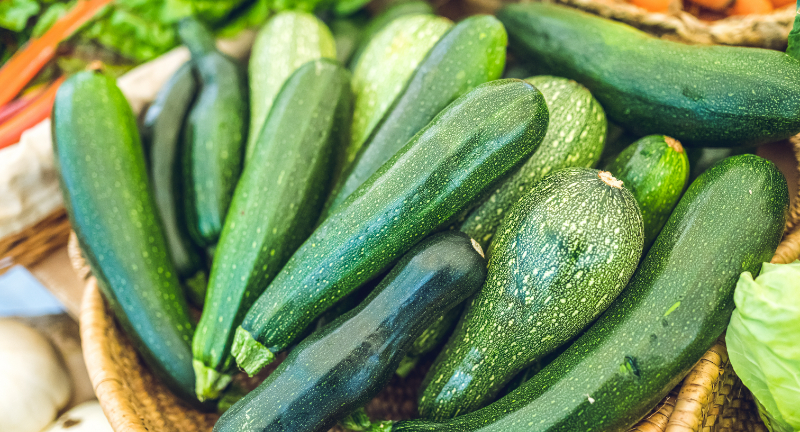
Shutterstock
Zucchini is susceptible to pesticide residues, especially in its thin skin. Organic zucchini provides a clean, flavorful vegetable for stir-fries or pasta substitutes. It’s rich in antioxidants and supports digestive health. Organic farming also helps maintain biodiversity and soil health.
Pears

Shutterstock
Pears are often sprayed with pesticides, which can remain on their skin. Organic pears offer a safer and tastier option with no chemical residues. Their soft, juicy texture makes them perfect for desserts or snacks. Supporting organic orchards promotes environmentally friendly farming practices.
Almonds
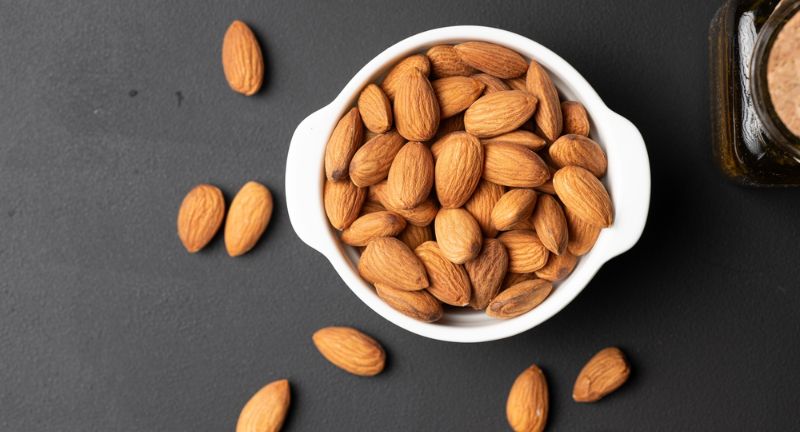
Shutterstock
Almonds are frequently treated with pesticides and synthetic fertilizers. Organic almonds ensure your snacks are free from harmful chemicals. They’re an excellent source of protein and healthy fats. Organic nut farming also protects pollinators and reduces chemical runoff.
Coffee

Shutterstock
Conventional coffee farming often involves heavy pesticide use. Organic coffee guarantees your morning cup is free from synthetic chemicals. It also tends to have a more robust flavor and aroma. Organic coffee farming supports fair trade practices and reduces environmental harm.
Conclusion
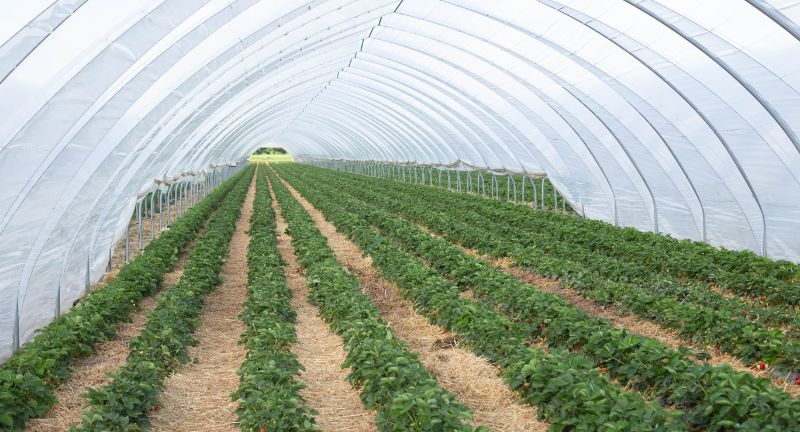
Shutterstock
Switching to organic for these items is a simple but impactful way to reduce exposure to harmful chemicals while enjoying more flavorful, nutrient-rich food. Beyond personal health, choosing organic supports sustainable agriculture, better animal welfare, and improved environmental outcomes. While not every product needs to be organic, these items make a strong case for mindful consumption. With a strategic approach, you can shop smarter, enjoy tastier food, and contribute to a healthier planet.

































